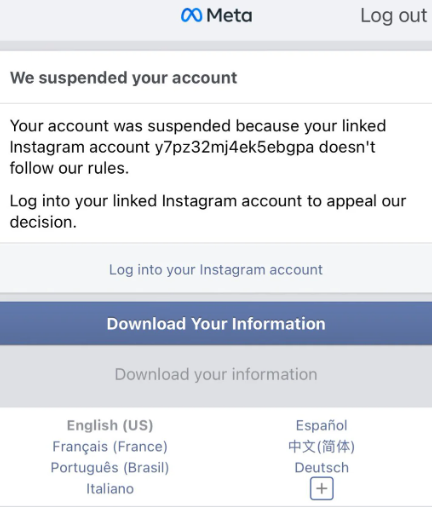Table of Content
- What Happened in the Facebook Data Breach?
- What was the Impact on Facebook Users After the Recent Facebook Data Breach?
- The Motto of the Hackers Behind the Data Breach
- What are the Potential Privacy Risks from Exposed Data?
- How to Take Immediate Action in Case of a Data Breach
- Frequently Asked Questions (FAQs)
Imagine your Facebook profile being laid bare to the online world!
Your private photos, secret messages, and deepest secrets exposed to everyone.
It happened to millions in the recent Facebook data breach that ruined the illusion of online privacy.
Discover the chilling effects of this breach, related consequences, and how you can protect yourself.
What Happened in the Facebook Data Breach?
According to a recent post on the Breached Forum, a hacker named b1nary 01 claimed to have accessed private Facebook user data. The post, dated Wednesday, June 5, 2024, at 12:36 PM, provided a sample Excel sheet with 100,000 data lines.
This event pertains to the alleged disclosure of a large database of Facebook users. Sensitive user data, including complete names, profiles, emails, phone numbers, dates of birth, and locations, is among the compromised data.
Discover if Your Most Critical Identifiers Have Been Exposed on the Dark Web
Receive timely alerts and actionable insights with PurePrivacy's Dark Web Monitoring.
With more than 50 comments to the post and 3563 views, since the message was posted yesterday, the curiosity from the criminal underground was evident right away.
Facebook (Meta) has yet to comment on the claims made by the cybersecurity experts. Researchers said:
"Investigations are ongoing to determine whether this breach is the work of a sophisticated cybercriminal group, hacktivists, or other malicious entities,”
They further added:
“Facebook (Meta) faces potential reputational damage due to concerns about data security, potentially impacting user trust.”
What was the Impact on Facebook Users After the Recent Facebook Data Breach?
According to the forum post by the user ‘b1nary 01’, the compromised Facebook user database for 2024 has been published, consisting of 100,000 lines of personal information. The data supposedly includes:
- Complete Name
- Phone Number
- Email Address
- Profile URL
- Location
- Date of Birth
The post also contains a sample of the compromised data, indicating various personal details of a few individuals. However, this sensitive information is not copied here for privacy reasons. The data file may be accessed on the forum for 8 credits in XLSX format.

The Motto of the Hackers Behind the Data Breach
By the end of 2024, Facebook will have approximately three billion monthly active users.
Facebook employs more than 80,000 people globally, and its services are used in various industries, such as digital communication, social networking, and advertising.
Potential motivations for these breaches frequently involve identity theft, financial gain from selling personal data, and the use of user data for nefarious purposes.
What are the Potential Privacy Risks from Exposed Data?
If the reported hack is real, there may be serious repercussions for impacted Facebook users. The data exposure may result in the following:
Identity Theft
Threat actors can impersonate someone to perpetrate fraud when they can access full names, emails, phone numbers, and dates of birth.

Phishing Attacks
Targeted phishing campaigns can exploit compromised phone numbers and email addresses to obtain further sensitive data or infect devices with malware.
Doxxing and Violating Privacy
Making users' location and personal information publicly available is against their privacy rights.

Damaging Reputation
Yet another data leak that further erodes customer trust and harms Facebook's brand may impact the company's user base and commercial operations.
Compromising Account Security
The 2FA breach could result in unauthorized account access, which could result in money loss, identity theft, or reputational harm.
Lacking Trust in Facebook
Frequent data breaches damage users' faith in Facebook's ability to safeguard their personal information, which may cause them to look for other platforms or cut back on their online activities.
How to Take Immediate Action in Case of a Data Breach
It's critical to take immediate action to protect yourself if you become aware of a Facebook data breach that may have compromised your personal information. This is what you are supposed to do:
- Create a robust and distinct password using a mix of capital and lowercase characters, digits, and symbols.
- To increase security, use two-factor authentication, which requires a code from your phone or another device to log in.
- Examine related websites and apps and delete apps or websites you don't use or believe in.

- Search for strange postings, messages, or friend requests to detect questionable activities.
- Avoid opening attachments from senders you don't know, and avoid clicking on links in emails and messages.
- Contact the corporation directly to ensure that an email or communication you receive is legitimate.
Search the Dark Web Continuously
You can scan and search the dark web and get alert notifications in case someone posts your personal information on the dark web.
Send Information Removal Requests
You can assess and prevent data brokers involved in data collection by sending recurring data removal requests to 200+ data brokers.
Auto-Delete Search History
You can protect your online privacy by automatically deleting your search history and stopping unauthorized tracking.
Block Invisible Trackers
You can protect your online activities from prying eyes by identifying and blocking internet trackers.
Frequently Asked Questions (FAQs)
-
Where can I find data from Facebook leaks?

You don't have to search through hacker forums to determine if your personal information was compromised. Visit Troy Hunt's Have I Been Pwned website to see whether you have been compromised. Troy Hunt is a cybersecurity specialist.
-
Has someone hacked my Facebook account?

You or your friends may detect activity or changes on your Facebook account that you did not make. This is known as account hacking. For example, the image on your profile has been changed. You did not create all the posts, comments, or messages there.
-
Can Facebook track your phone?

Facebook tracks certain information even when you are not logged in, so you should know what information is being collected. Facebook uses tracking cookies that are kept on your mobile device or computer. These cookies are files with information about your online activities that have been logged.
-
How can I prevent my browsing history from being tracked by Facebook?

In the upper or lower right corner, select your profile icon. Proceed to Settings & privacy > Settings from there. Select the Off-Facebook activity option in the Your Information section of the Settings & Privacy window, and then click Continue.
Wrapping Up!
The Facebook data breach of 2024 made millions of account information public, underscoring the platform's ongoing susceptibility to cyberattacks. This incident highlights how urgently improved data security measures are needed to maintain user privacy.
Consider using PurePrivacy on your devices to use Dark Web Monitoring, block 1000+ online trackers, enhance social media privacy settings, and send recurring opt-out requests.







